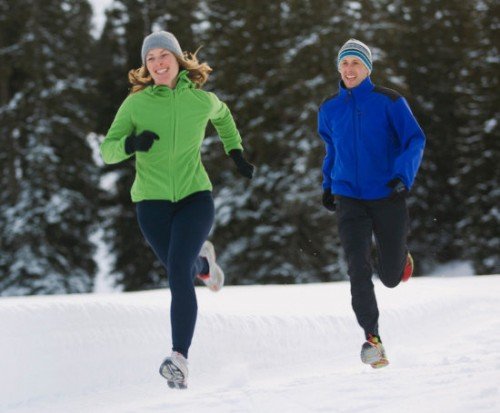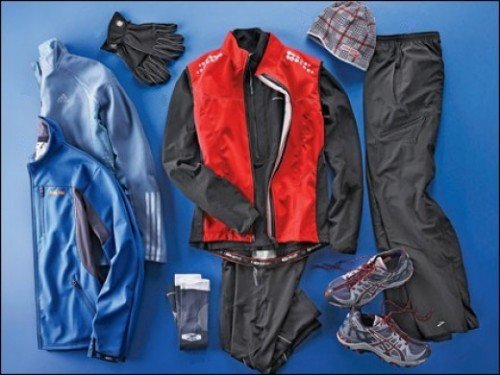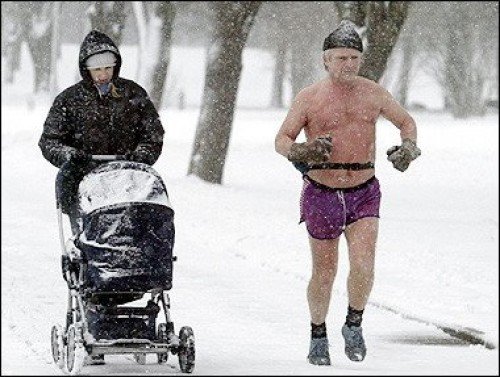The second autumn month is counting its days on the calendar, which means that real cold weather will come to us very soon. Many, especially novice runners, believe that the autumn-winter period is not the best time to train and transfer their classes to the gym or stop them altogether. In fact, this is not the case at all, and you can practice in autumn and winter no worse than in summer. It is enough just to follow a few simple recommendations.

Of course, there are no universal tips, and some of our readers living in extremely low temperature zones are unlikely to be useful. However, in most cases, running training can be continued quite successfully, even when the thermometer needle reaches -15 or -20 degrees. Moreover, from personal experience I can say that such workouts are more enjoyable than running in the summer in the thirty-degree heat.
In addition, running in the cold season can bring additional benefits to your body.
Don't overheat
The main mistake of novice winter runners is that they exaggerate the strength of the cold and put on too many clothes, dressing almost the same as an ordinary pedestrian. As a result, it is simply difficult for them to run, they very quickly begin to sweat profusely and experience discomfort. For a winter run, you should equip yourself in such a way that when standing still, you feel cold. When running, you will still be hot, the only question is after what kilometer.

Layering of clothing
Usually winter runners wear several layers, each of which has its own function. The bottom layer is thermal underwear designed to remove sweat from the body. The second layer is used for warming, which is best handled by products made of fleece . Well, the third, outer layer, is designed to protect against wind, rain or snow. Depending on the current weather conditions, the runner varies and combines elements of his sports wardrobe in different ways.
No cotton
On the Internet you will find hundreds of sites advertising special branded clothing designed for cold workouts. As a rule, it costs a lot of money and is accompanied by simply fantastic descriptions of its effectiveness. The purchase of such high-tech equipment is useful if you have enough funds, but by no means a critical condition for successful winter training. The main thing to remember is that you should give preference to synthetic fabrics that do not absorb moisture and dry quickly. Let me remind you that we are talking about amateur running, professionals have their own problems.
Hands, ears, nose
If it's already minus outside, especially with a strong wind, then be sure to take care of your head and limbs. In a severe frost, no matter how you warm up running, your ears, nose and fingers are still in danger of frostbite. Therefore, do not forget about a hat, gloves, and in severe frosts, take care of a special mask or scarf.

Warm-up
Of course, you are aware of the benefits of warming up before jogging. So, in winter, warm-up is not just useful, but mandatory. Warming up the muscles and stretching the ligaments will prepare your body to work in the cold. Moreover, it is advisable to do this warm-up even before going outside, so that you can go out into the cold and immediately run.
Loads
When practicing in the cold, the body spends more energy than at normal times. Keep this in mind when planning workouts and, possibly, reduce the time and duration of the run.
End of training
In no case is it permissible to stay in a heated, sweat-soaked state without physical activity. Therefore, finish the distance as close to home as possible so that you get into a warm room right after the finish. A hot shower, herbal tea will be a great end to the workout.
Ice
In winter, and especially in spring, it can be slippery. This is a really serious danger that lies in wait for a runner, as an unsuccessful fall on the ice can lead to serious injuries. Reduce the distance and pace to a minimum on such days, take care of reducing the slipping of the soles of your shoes, look for a less icy route.

Become visible
Winter daylight hours are very short, so it is very likely that you will run at dusk or even in the dark. Make sure that you are clearly visible on the road with the help of reflective clothing elements or stripes.Be attentive to yourself
Although winter running is not an extremely extreme activity, it still has its differences from the usual one. Listen to your feelings, do not set yourself sky-high tasks, do not hesitate to cancel training in severe bad weather or if you feel unwell. Be reasonable.Do you run in winter?